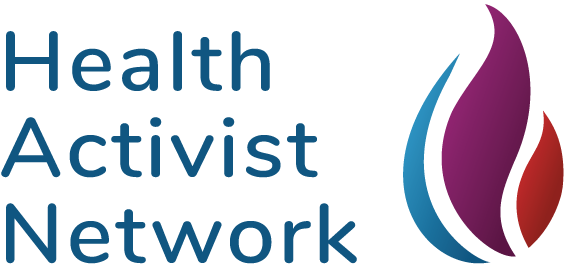Privacy settings may have prevented some items from showing.
Please update your search criteria and try again
This Fellowship takes on a key challenge: the reality that professionals are not well prepared to deal with or talk about death, dying, and grieving families, especially during an era of COVID-19. The Fellowship allows participants to learn, confront, and discuss the legal, medical, social, cultural, familial, and spiritual aspects of death and dying within a multi-disciplinary group in a low-pressure environment. The sessions include opportunities to practice conversation skills, facilitated conversations, and virtual site visits.
The home for the 2019 Salk Health Activist Fellowship.
We are going to use this platform to be able to communicate effectively, collaborate, and build each other up for this fellowship. Activism starts here. Let us learn and use each other's strengths to the best of our ability.
Together, we can change the world.
Patients who lack the basic access to Food Transportation and Housing are at greatest risk for being isolated from the healthcare system. Efforts underway to improve and remove that barrier are needed to ensure long term patient improvement.
The home for the 2018 Salk Health Activist Fellowship.
We are going to use this platform to be able to communicate effectively, collaborate, and build each other up for this fellowship. Activism starts here. Let us learn and use each other's strengths to the best of our ability.
Together, we can change the world.
The Health Activist Network Action Group is the home for all Network members.
All things Network-related are encouraged.
Right Care is a human right. It places the health and wellbeing of patients first. Right Care is affordable and effective. It is compassionate, honest, and safe. Right Care brings healing and comfort to patients, and satisfaction to clinicians. Achieving Right Care will require radically transforming how care is delivered and financed.
The Right Care Alliance (RCA) is a grassroots coalition of clinicians, patients, and community members organizing to make health care institutions accountable to communities and put patients, not profits, at the heart of health care.
We affect change by
- Conducting local campaigns on right care issues such as
 primary care access and high drug prices
primary care access and high drug prices - Collaborating with others to identify areas of improvement within clinical specialties
- Speaking up about the systemic problems in our health care system through op-eds, videos, and other media
- Listening to experiences of community members and sharing stories
- Mobilizing for direct action on a national level through events like the March for Science
There is only one problem that has affected every person who has ever lived on Earth, and it is the last one any of us ever face.
Americans have a unique problem with death: it's not simply that we don't know how to talk about it, it's that we largely refuse to talk about it at all or engage with the concepts and realities of our only truly unifying experience. Healthcare providers feel they are failing if they even consider the topic of end of life conversations. Popular culture debases our understanding of death by portraying it in every conceivable way other than the one in which we actually experience it. Only through preparation, understanding, and normalization can we improve end of life and the grieving and bereavement process of those we leave behind.
A popular modern author wrote: If you have ever lost a loved one, then you know exactly how it feels. And if you have not, then you cannot possibly imagine it.
If loss is so universal, why do we not make it a priority to better prepare ourselves to face it?
That is the goal of this Action Group: to face the problem of illiteracy on the topics of death, grief, and bereavement with supportive materials that can be distributed or shared by anybody, in any forum, at any stage of life or in any setting of healthcare.
The vision of this group is to realize the implementation of medical marijuana as a viable therapeutic option. Although legislation has enacted its use in Pennsylvania for a select number of disease states, a number of barriers to implementation exist before comprehensive medical marijuana therapy can become a reality.
This action group hopes to learn from local leaders in medical marijuana policy reform, anticipate these barriers to impelementation, and combine resources to address the root causes that might affect the greatest downstream change.
Last, this action group hopes to investigate research showing the influence of comprehensive marijuana policy on opioid abuse and overdose in pilot states across the country. Synthesis and analysis of this research may illuminate the role of medical marijuana as an alternative to opiate therapy in the management of long term pain. We hope to investigate this with both precision and urgency and present our findings to experts in pain management.
The flu is a common disease, affecting all ages, which can lead to serious illness and even death. Many people percieve the flu as something similar to a cold: It's not going to kill me. I'll be fine. I don't need my flu shot. Faces of the Flu allows people to tell their flu stories to show others how bad the disease can really be. Through this project, Faces of the Flu aims to increase the utilization of flu shots to prevent further morbidity and mortality from influenza.
We are going to use this platform to be able to communicate effectively, collaborate, and build each other up for this fellowship. Activism satrts here, let us learn and use each other's strengths to the best of our ability.
We are here to help, and are open to any and all questions that you may possess. If we don't know the answer, we will do our best to find someone who does. Together, we can change the world.
